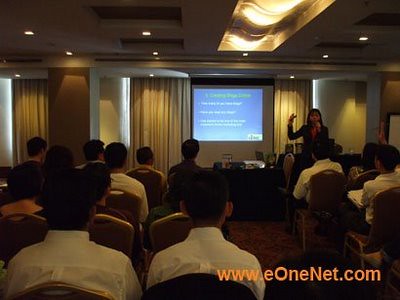Earlier today Phandroid seemed to have off-contract pricing information on the upcoming T-Mobile Samsung Vibrant – the T-Mobile variant of the Samsung Galaxy S – as $329 without contract. Sounds great right? Well, that was taken down from the T-Mobile site promptly – turns out the actual off-contract pricing is set at $450.
T-Mobile contacted Phandroid and informed them that the actual off-contract price of the device was $450. The pricing makes sense. It would not be so smart for Magenta to have priced the device at such a low price, as that would encourage people to just buy the device outright and not get on a contract (the more lucrative option for any carrier). T-Mobile, the 4th largest carrier in the US needs all of the customers it can get, whether its on or off contract, but contracts are what make you stay with the carrier. As such, T-Mobile would like to wrangle you into paying them for two years of your life, as does every other carrier.
The $49 pricing applies to the Even More Plus plan T-Mobile offers, which is a contract free plan that offers the option to pay for your no-contract phone in installments – think of it as smartphone financing. I’ve been on this plan since it was debuted late last year, and the option to finance a phone is really convenient. Paying $20 extra dollars per month for a MyTouch 3G (that I never use, but still a decent back up) is no problem in my book. It gives the customer the option to leave T-Mobile, but would still have to pay the remainder of the financed device. I’d expect this option to be available for the Vibrant as well when it comes to this specific plan, but the monthly payment price is not yet known. In the picture below, it states that you can pay for the device over time for as little as $16.50 a month, but since it was taken down, the price could be higher.
After being in contracts for so long, and wanting a different phone almost every other month, I started buying smartphones unlocked or at full no-contract prices. I can leave any carrier of my own accord, and I can take my phone with me (to AT&T…..). $450 for a phone is not bad, especially for a Samsung Galaxy S. And, there’s no doubt that the T-Mobile Samsung Vibrant will be the best Android phone T-Mobile has ever put in their line up.
I was planning on getting this device, but now I think I’m going to wait another six months until we start seeing some Gingerbread devices hitting market. Anyone else out there thinking the same thing?
[Via: Phandroid]
Last August there was much criticism over the fact that President Obama agreed to give Brazilian Owned Oil Company Petrobras up to $10 Billion Dollars to look for Oil off the Brazil Coast. At the time it was especially disturbing because the Administration objected to the US Drilling off its own coast, which would have worked toward keeping the price of oil low and help wean us off foreign oil.
Today it is even more disconcerting, Obama's drilling moratorium may have been blocked by a judge today, but Secretary of Interior Salazar intends to announce a new one tomorrow. And the longer this "moratorium" lasts, the more likely we are to see the Oil Rigs in the gulf move down to Brazil where they are planning to drill for oil in seas twice as deep as the Deepwater Horizon site.
Why would the POTUS pay for a foreign country to drill for oil but object to his own country taking advantage of his own country's resources? And worse why would he fund the oil drilling of another country for it to "steal away" drilling resources from the Gulf sites?
Payback.
Last August Ed Morrissey at Hot Air discovered that "coincidentally" just a few days before the announcement of the US Oil Exploration Aid, George Soros the presidential puppet-master, set himself up to make a lot more money from Brazilian Oil Exploration:
His New York-based hedge-fund firm, Soros Fund Management LLC, sold 22 million U.S.-listed common shares of Petrobras, as the Brazilian oil company is known, according to a filing today with the U.S. Securities and Exchange Commission. Soros bought 5.8 million of the company’s U.S.-traded preferred shares.
Soros is taking advantage of the spread between the two types of U.S.-listed Petrobras shares, said Luis Maizel, president of LM Capital Group LLC, which manages about $4 billion. The common shares were 21 percent more expensive than preferred today, according to data compiled by Bloomberg. …
Petrobras preferred shares have also a 10 percent additional dividend, said William Landers, a senior portfolio manager for Latin America at Blackrock Inc.
“Given that there will most likely never be a change in control in the company, I see no reason to pay a higher price for the common shares.” Brazil’s government controls Petrobras and has a majority stake of voting shares.
NICE! Making money on the spread, and putting himself in a position to make more money from higher dividends just before all the big bucks "donation" from President Obama. Soros must be master of the deal or Obama is the master of the quid quo pro.
According to Front Page Magazine, this Petrobras deal was put in place by the President as a nice way to say thank you to Mr Soros.
Now it’s time for Soros to collect on his investment. The Wall Street Journal recently reported that the Obama administration has committed up to $10 billion to Brazil’s state-owned oil company Petrobras to finance oil exploration off of Brazil’s coast.
Yet Obama historically has opposed expanded oil drilling. This was not only a strategic decision, aimed at pleasing the environmental Left, but also a personal choice, since Obama sincerely believes that drilling is deeply destructive to the natural environment. Thus, as a Senator, Obama voted against permitting the U.S. to drill for oil and natural gas in the Arctic National Wildlife Refuge on the grounds that it would be a crime to despoil such “beautiful real estate.” Similarly, during last year’s presidential campaign, he warned of the “environmental consequences” of oil drilling, and insisted that “we cannot drill our way out of the problem.”
But apparently George Soros can. The president has elected to help another nation with the same type of drilling that he opposes so vehemently for this country, and the reason seems to be Soros’s $811-millon investment in Petrobras. The company just happens to be the largest holding in Soros’s investment fund. Soros’s connection to the company is no secret; he has been investing in Petrobras since 2007. A profitable venture, Petrobras has estimated recoverable reserves for the so-called Tupi oil field of between 5 and 8 billion barrels. With his billion-dollar loan, Obama has taken patronage politics to striking new level.
The Petrobras loan may be a windfall for Soros and Brazil, but it is a bad deal for the US. The administration is prepared to lend up to $10 billion to a foreign company to drill off its coast, when it could bring in $1.7 trillion in government revenue, as well as create thousands of new jobs, by allowing drilling off the coast of the United States.
....The oil deal stinks for other reasons, as well. For instance, there is the rank hypocrisy of Soros – an enthusiastic proponent of global warming theory and environmental liberalism – investing in the fossil fuels whose use he otherwise condemns – and doing so in part with the aid of taxpayer funds. For years, Soros has urged the adoption of a global carbon tax that would punish companies that contribute to global warming. But that didn’t prevent him from plowing money into Petrobras.
The cozy Soros-Obama alliance goes beyond favorable oil deals. It’s also playing a role in the health care debate. Huge demonstrations dedicated to enacting Obama’s universal health care are largely a Soros-financed operation. When tens of thousands of people rallied in the nation’s capital in support of Obama’s health care plan, the demonstrations were organized by Health Care for America Now! (HCAN), a new national grassroots movement of more than 1,000 organizations in 46 states encompassing 30 million people dedicated to winning health reform now.
The “grassroots” organization appears to be more like a gang of interconnected ultra-liberal pressure groups. Among the 21 members of its steering committee are such Soros-funded groups as ACORN, MoveOn.org, and the Center for American Progress (CAP), headed by Clinton former chief of staff John Podesta, who also has been a key adviser to Obama. Soros’s charity, the Open Society Institute, in 2007 gave CAP $1.75 million and approved added grants of $1.25 million.
Obama’s collusion with Soros and his agenda-driven squadrons is an unfortunate turn from an administration that entered office promising unprecedented transparency in the White House. Soros certainly did his share for Obama. Now, with his backing for a billion-dollar oil loan to a Brazilian company, the president has proven more generous to Soros than to the American voters who put him in office.
There is that Old Saying, Payback's a bitch. Obama's ten billion dollar gift to Petrobras along with the drilling moratorium designed to give the Brazil-based company partially owned by his good friend George Soros, proves that sometimes payback is not a bitch, its a wallet fatten-er.
internet marketing course What Are Values, and Why Are They Important?Values are principles, standards or qualities you consider worthwhile or desirable. Values will vary greatly from person to person because they depend on your personal judgment. What principles, standards, or qualities do you consider worthwhile or desirable? In other words, what are your personal values?
If you cannot answer this question confidently, you may want to continue reading. Knowing your personal values is extremely important because those values shape everything about you. Your relationships, behavior, choices, and personal identity are all affected by your values. Even if you cannot name all your values, they are still influencing every aspect of your life.
However, we are easily distracted - especially with all of the busyness and media in our lives today. It's far too easy to get sidetracked and led away from your values. This is why it's vitally important to know your personal values. Those values are your compass for the day to day decisions you must continually make, and they help draw the map of your entire life.
The Role of Values in Personal FinanceNow why would I be discussing values in a personal finance article? Isn't that more of a personal development topic? Well, yes - it is. But the truth is that your values will have an impact on your financial decisions. There is no use in looking at numbers, giving you advice, or talking about investments until you can list your personal values. As I mentioned above, your values shape everything about you. Your values affect your behavior and choices. Your behavior and choices affect your personal finances. Therefore, you must recognize and understand your values before you can really start to work on your personal finances.
For example, let's say you want to start using a budget to track your spending and find ways to save money. If your values include frugality, thrift, and organization, then this will probably be an easy goal. But if your top values include extravagance and liberation, you're probably going to run into some problems trying to stick to a budget.
So before you spend any more time reading about personal finance, take a few minutes to identify your personal values. There are different ways to do this, but I'll explain the method I've used. If this doesn't work for you, then a quick Google search will provide you with other ways to accomplish the task. If you are married, have a partner, or your finances somehow involve other people, then you may want to do this exercise with the other people involved. This will elicit an important discussion and make sure you are in agreement about your guiding principles.
Identifying Your ValuesTo start this process, you will want to make sure you have time to focus. Sit down with some paper, and ask yourself this question: What is most important to me in life? Write down your values to answer this question. Try to make these one or two word phrases, and don't worry about the order yet.
If you are having trouble listing specific values, you can try using Steve Pavlina's list of values (http://www.stevepavlina.com/articles/list-of-values.htm) as a starting point. Go through this list and write down the values that you feel are most important. Try not to choose the values you think you should have, but choose the ones you find truly important in your life. If you'd rather not write these down on paper, I have included a link to Steve Pavlina's List of Values in a Microsoft Word Document (www.crackerjackgreenback.com/wp-content/uploads/2008/05/list-of-values.doc) so you can edit it in an electronic format.
Prioritizing Your ValuesNow try to narrow down this list by combining similar values into a single value (or two if you need to). You want to get this list down to no more than 10-15 values. Then you need to prioritize your list of values. You can do this by listing your top value first, then your second highest value, and so on until you've prioritized your entire list. If you are having difficulty prioritizing this list, then you might want to try CNN Money's "The Prioritizer" calculator at cgi.money.cnn.com/tools/prioritize/prioritize_101.jsp. The Prioritizer allows you to list up to 15 items and then asks you a series of questions that forces you to choose between each possible pair of goals. Once you're finished, the calculator will give you a list of your values in priority order according to your choices.
Examine Your ValuesNow that you have your prioritized list of personal values, it's time to examine these values closely. Are there any that you feel do not fit? Are there any you'd like to change? This can mean dropping a value, adding a value, or tweaking your priorities. Some of your financial goals may require changing your values or priorities, so feel free to reexamine this list at any time.
Evaluate How Your Values Should Affect Your LifeFinally, it's time to consider how your specific list of values will affect your life. If these are the things that are most important to you in your life, how should they steer your decisions? You might feel like you're not following your values very well at this point in your life, but you have the ability to change that right now. With your list of values in hand, you can evaluate any decision with intelligence and confidence. You just have to ask yourself: What should I do in this situation if these are my guiding principles in life? Apply this method to every area of your life, and you're sure to see your life becoming more aligned with your values. As your situation changes, you might need to revise your values. Adapting to changes in your life will be crucial to your success in accomplishing your goals.
Now that you have your list of personal values, you can proceed with evaluating and planning your personal finances. These values should help lead you in making the necessary decisions about your goals, priorities, necessities, and the things you're willing to sacrifice. All of these are important in reaching a financial future that will ultimately make you happy and fulfilled. For more information, you can read Steve Pavlina's take on Living Your Values at http://www.stevepavlina.com/articles/living-your-values-1.htm.
penis enlargementIN 'GREEN NEWS EXTRA' (see links below): CA's pioneering e-waste program a model gone wrong; 'Climategate' debate a polite, well-mannered affair; Geoengineering can't please everyone!; CBO: Corn based ethanol a waste of taxpayer money; ...
Chip giant is shipping a less expensive six-core processor for the highest of high-end PCs. Read this blog post by Brooke Crothers on Nanotech - The Circuits Blog.
Jewish Scene: Some 25 Eda Haredit members protest outside postal branch in Bukharim neighborhood in Jerusalem, demanding Ynet news updates shown inside site's screens be removed. Two rioters who broke inside, hit security guards ...
how to lose weight fast






